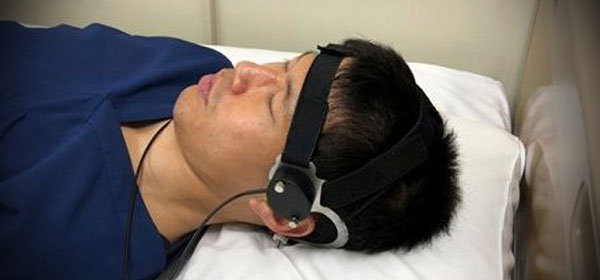Japanese scientists have discovered that sound may be the cure for dementia – ‘ultrasound’, to be exact.
Researchers at Tohoku University in Japan have found that ultrasound waves applied to the whole brain improved cognitive dysfunction in mice, and they suggest the same treatment could benefit humans.
Professor Hiroaki Shimokawa and his team applied low-intensity pulsed ultrasound (LIPUS) to the whole brain of mice, which resulted in improved blood vessel formation and nerve cell regeneration without obvious side effects.
“The LIPUS therapy is a non-invasive physiotherapy that could apply to high-risk elderly patients without the need for surgery or anaesthesia, and could be used repeatedly,” says Prof Shimokawa.
Currently, there are around 50 million people in the world with dementia and around 10 million new cases are reported each year. The most common causes of dementia – vascular dementia and Alzheimer’s disease – have no cure. This may be attributed to how the cells lining the brain’s blood vessels are tightly packed, making it difficult for potential treatments in the form of medications and other drug therapies to cross over into brain tissue.
Previous studies of LIPUS showed improved blood vessel formation in pigs with a condition that reduced blood flow to the heart. Other studies have revealed that LIPUS has increased production of proteins associated with nerve cell survival and growth, potentially even promoting nerve regeneration.
Results of focusing this treatment on the hippocampus, a region of the brain which is involved in memory, have shown cognitive impairment markedly improves in mice with conditions similar to vascular dementia and Alzheimer’s disease.
Researchers applied LIPUS to the whole brains of mice three times a day for 20 minutes at a time. Results showed that, at the molecular level, genes related to the cells lining blood vessels were turned on and increased the expression of an enzyme involved in blood vessel formation and a protein involved in nerve cell survival and growth.
The study, recently published in the journal Brain Stimulation, shows promising evidence that LIPUS therapy could be the answer to improving cognitive dysfunction, and the first clinical trials of the treatment are already underway.
Does a dementia treatment that doesn’t involve drugs or surgery sound appealing to you?
Related articles:
New dementia trigger revealed
Can music be used to heal?
Key dementia treatment won’t work

